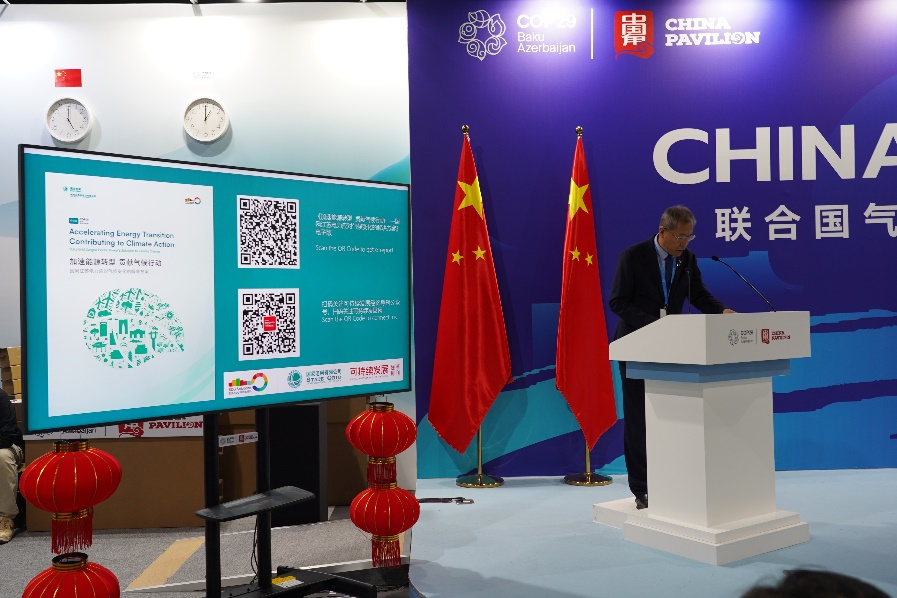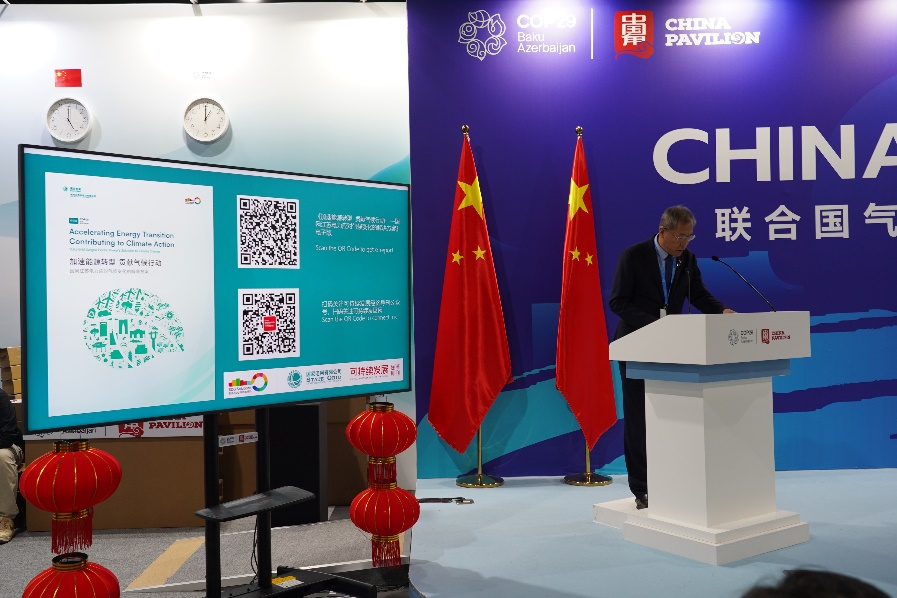
BEIJING, Nov. 21 (Xinhua) -- Power grid operator State Grid Jiangsu Electric Power in east China's Jiangsu province released a casebook to present its sustainable development-fostering practices at a side event of the COP29 on November 20.
The casebook unveiled during the 29th session of the Conference of the Parties to the United Nations Framework Convention on Climate Change (COP29) showcases its 10 typical cases of innovation in power distribution, grid construction, new energy development and energy saving.
Titled "Accelerating Energy Transition, Contributing to Climate Actions", the casebook represents its efforts in expediting new energy system and new type of power system construction and enabling low-carbon industrial development, rural energy reform and consumption-side energy saving in Jiangsu.
When distributed energy burgeoned recent years, the company optimized micro-grid operation and control technologies to improve the overall efficiency and reliance of energy systems.
Via building e-Parks, electric vehicles and power grids are well interacted to boost digestion and utilization of local clean energy in Jiangsu.
By innovating the "river water-cooled air-conditioning" mode, the company facilitated heat pump technology-based cooling service for urban buildings in the coastal cities of Jiangsu.
For islands alongside the coastlines of Jiangsu, the company promoted smart micro-grid development to better aid their green and low-carbon transition and provide cleaner and more reliable energy for them.
To explore low-carbon development of cement industry, the company leveraged wind and PV power-related grid technologies to provide low-carbon energy solutions for local cement industry.
Through constructing new coastal power facilities, the company helped reduce carbon emissions of shipping industry and bolster the green transition of inland river shipping in Jiangsu.
In speeding rural energy reform, the company worked to expand the use of smart agricultural technologies and new energy and innovated related technologies and management to guarantee green energy development in rural areas.
Apart from these, the company has also engaged in using digital means to innovate carbon footprint management to make local enterprises' green production traceable.
By building smart micro-grids and energy management systems, the company lit up local "zero carbon scenic zones" with new mode of carbon management, under which self-sufficient energy supply and zero carbon emission served as green tourism boosters.
In future, the company plans to enhance cooperation and communication with related parties to jointly contribute to realization of global green and low-carbon transformation and sustainable development goals.
(Edited by Duan Jing with Xinhua Silk Road, duanjing@xinhua.org)




 A single purchase
A single purchase









